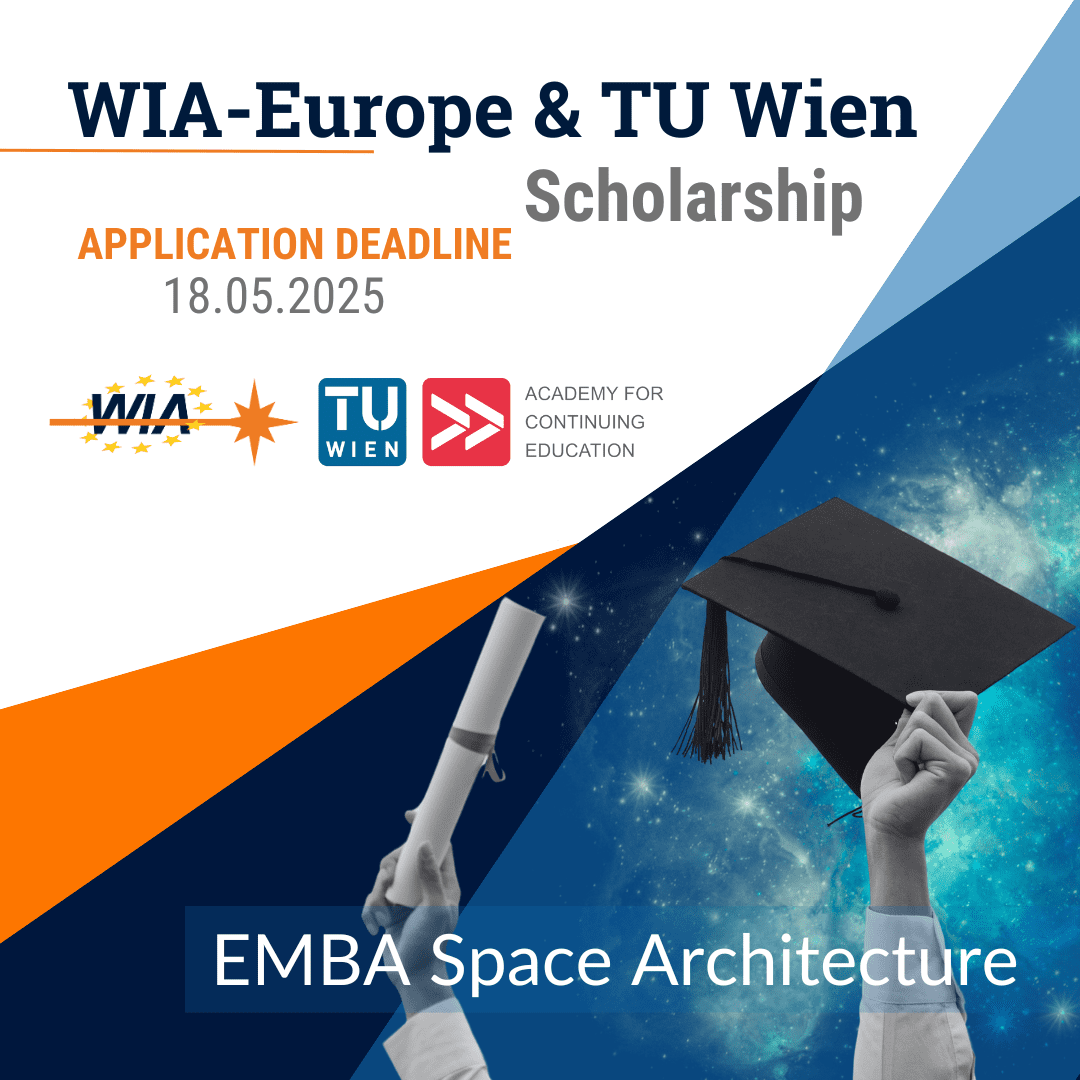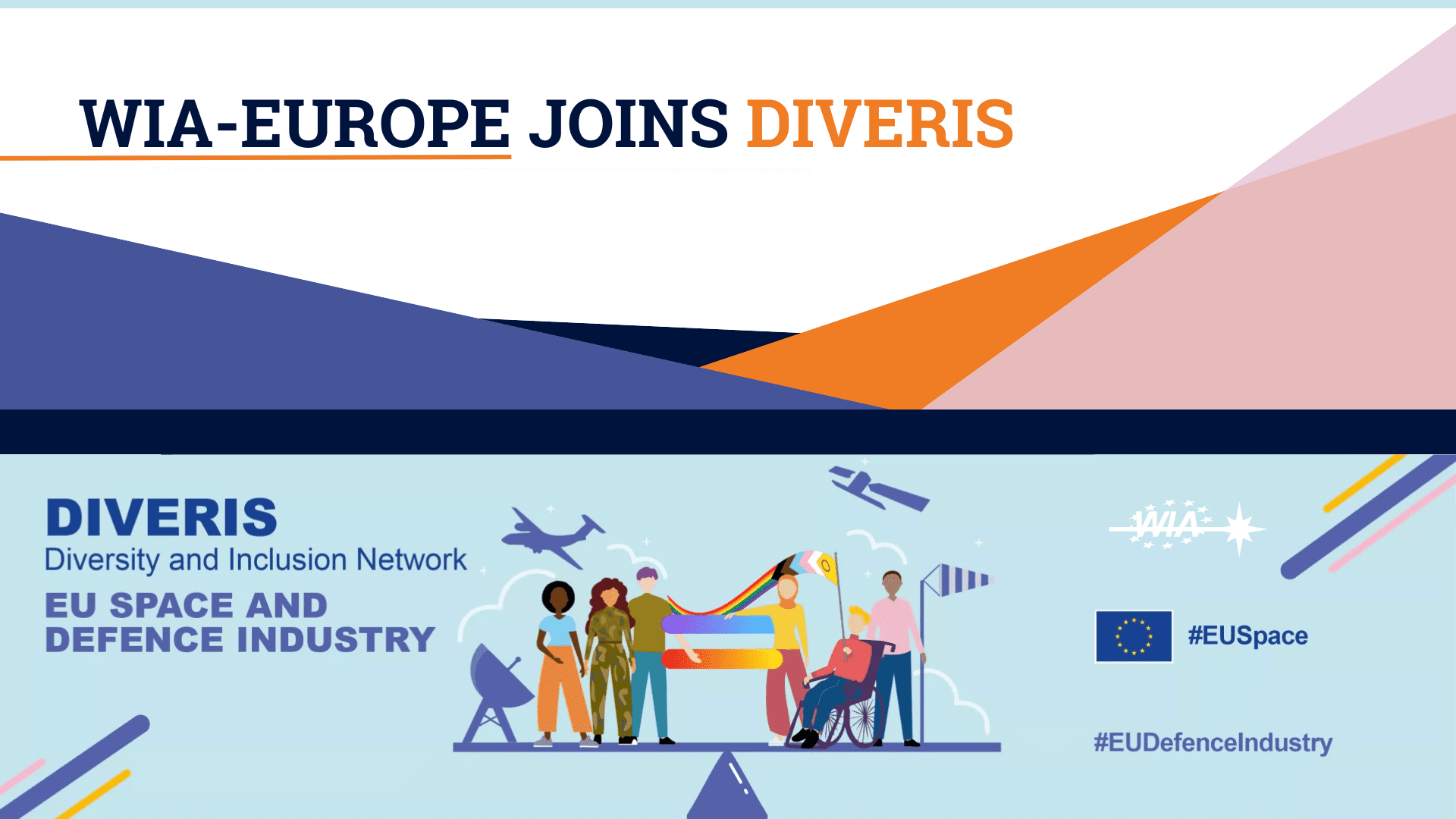
This year’s Women in Aerospace Europe (WIA-Europe) Symposium focused on the pressing topic of Skills Gaps in the Aerospace sector, featuring a series of online events and workshops. One of the standout events was the Skills Summit, which brought together a panel of esteemed experts from diverse Aerospace backgrounds to share their thoughts and ideas on the European Year of Skills.
Our esteemed panellists included
- Vera Pinto, Policy Coordinator and Equality Coordinator at the European Commission Directorate-General for Defence Industry and Space (DG DEFIS)
- Lucy van der Tas, Head of Talent Acquisition at the European Space Agency
- Ioanis Lentas, an HR expert with experience in both private and public organizations, currently serving as the Seconded National Expert in HR for EUSPA – EU Agency for the Space Programme
- Dr. Christie Maddock, an Associate Professor at the University of Strathclyde, known for her expertise in trajectory and system design optimization
- Dr. Heidi Thiemann, Director and Co-founder of the Space Skills Alliance, who also moderated the event.
Join us as we delve into the highlights and key takeaways from this engaging panel discussion, where these experts shared their valuable insights and perspectives on addressing the skills gaps in the Aerospace industry.
- European Year of Skills, what can be expected going forward
The European Year of Skills aims to significantly enhance efforts in promoting upskilling and reskilling of the European workforce. It emphasizes the need for more inclusive investment in training across the European Union, particularly in underrepresented countries. Under the European Skills Agenda and the ‘Pact for Skills‘, a new partnership has been established involving various stakeholders such as the European Commission, EU associations, corporations, universities, and trade unions. This partnership focuses on upskilling and reskilling the workforce in the digital sector, attracting more individuals to join the digital industry value chain. Within the space sector, the skills partnership seeks to equip workers with the necessary skills to support future innovations and achieve the objectives outlined in the EU’s Space Strategy for Security and Defence, including skills related to data processing, application, and security.
- Skills and space skills
In the discussion, it was highlighted that skills are acquired through training and practice, indicating that they can be developed and improved. The importance of applying knowledge gained from educational institutions and corporations in practical situations was emphasized. Additionally, there was a recognition of misconceptions surrounding skill requirements in the aerospace industry, particularly for women, which can deter potential career paths. Overall, the speakers emphasized the value of training, application of knowledge, and challenging misconceptions in understanding skills within the aerospace industry. They encouraged individuals to recognize their own potential and the contribution they can make to the field.
- Competency frameworks
The discussion on competency frameworks highlights their main objective, which is to identify the core competencies necessary for individuals to perform their specific job roles to the desired standards. While it can be challenging to identify all technical competencies, collaboration between stakeholders and job holders has allowed for the identification and application of technical competencies for core engineering and operational positions.
The future development of competency frameworks would involve conducting a “training needs analysis” for each job family and level, which would facilitate the creation of effective training programs and the development of well-skilled workers. Competency frameworks are particularly beneficial for newcomers and job applicants, as they provide clear expectations and allow individuals to prepare for their current and future career aspirations.
Overall, competency frameworks offer a valuable structure that benefits all parties involved, providing explicit guidance on the skills required for successful job performance, whether for employees or candidates.
- Skills gaps in the space sector
The discussion on skills gaps in the space sector highlighted several key points. Firstly, with the aim of achieving climate neutrality in Europe by 2050, there is an urgent need for workers who possess a combination of skills in the space value chain and technical aspects of environmental performance to facilitate the transition towards a carbon net-zero era.
The lack of experience and an overabundance of overly specialized individuals was identified as a challenge. The sector requires more well-rounded employees who can contribute to the entire project life cycle, rather than being limited to a single aspect.
There are clear skills gaps in the areas of cyber and security, as the increasing demand for digital commercialization and space safety and security outpaces the available expertise in these fields.
While there is a high demand for individuals in STEM fields, talent attraction and retention remain significant issues. Statistics reveal a gender imbalance, with only 20% of the aerospace, defence, and space sector comprised of women. The industry needs to address the lack of inclusivity and create welcoming environments to attract and retain diverse talent. Recognizing and addressing these skills gaps is crucial, but equally important is the improvement of working environments to foster inclusivity and diversity.
- Strategies for Enhancing Diversity and Inclusion: Attracting and Retaining Women and Non-STEM Background Individuals
The discussion highlighted several strategies for attracting and retaining diverse talent within companies. One approach is through the use of gender-inclusive language in job adverts and throughout the workplace to promote openness and inclusivity. It was emphasized that companies should maintain inclusive standards consistently.
Encouraging candidates with transferable skills, even if they may not possess all the specific requirements, can broaden the applicant pool and provide a solid foundation for the role. Providing in-house training opportunities was also mentioned as a way to enhance skills and support professional development.
Creating a truly inclusive policy within the company and fostering a safe and secure workspace allows individuals to freely express their ideas and perspectives. This diversity of thought can contribute to a broader range of insights when addressing challenges.
Employers were encouraged to clearly communicate their expectations when seeking candidates and to consider skills from different angles. It was suggested to match the skills candidates have with the needs of the organization, thinking from the perspective of a recruiting manager.
Overall, the discussion highlighted the importance of language, skill openness, in-house training, inclusive policies, and a thoughtful approach to recruitment in attracting and retaining a diverse workforce.
- International collaboration in upskilling workforce
The discussion emphasized the significance of effective communication and language skills in international collaboration for upskilling the workforce. English language proficiency was highlighted as a valuable skill due to its status as a lingua franca.
It was stressed that it is essential to have an understanding of the individuals with whom you will be collaborating, including their cultural background and communication as well sa work styles. Developing a human connection with co-workers and customers from different cultures was emphasized as a way to foster successful international collaboration.
- Conclusion
In conclusion, it was emphasized that there is a need to gather and analyse the available data and statistics to identify gaps and areas for improvement. Institutions and agencies have a crucial role to play in facilitating better communication between educational curricula and industry needs to drive progress. Both downstream and upstream sectors of the industry must be prepared to meet legal obligations, particularly regarding the green transition and cyber-security aspects.
The idea of cooperation among EU agencies and institutions was proposed to conduct a survey or study on the gaps within the space industry. This collaborative effort could lead to the identification of areas for development and the establishment of a common plan for advancement.
Interested in following the full discussion? The video recording is available on our YouTube Channel:



